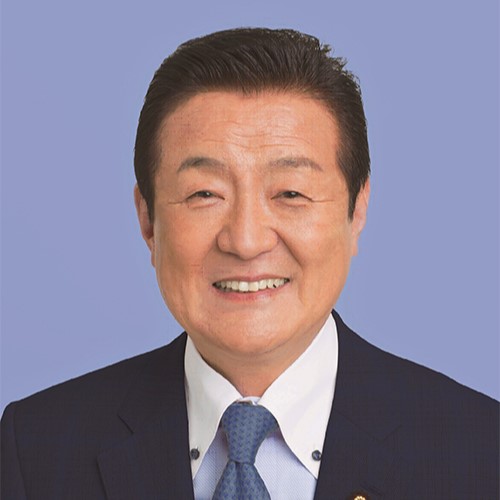Yukihisa Fujita
 Yukihisa Fujita served as Vice-Minister of Finance in the Japanese Government of 2011-12. He has twice been elected to the Lower House of the Japanese Parliament (Diet), and twice to the Upper House. He has headed the International Department of the Democratic Party of Japan (DPJ) and served in many other positions of political leadership.
Yukihisa Fujita served as Vice-Minister of Finance in the Japanese Government of 2011-12. He has twice been elected to the Lower House of the Japanese Parliament (Diet), and twice to the Upper House. He has headed the International Department of the Democratic Party of Japan (DPJ) and served in many other positions of political leadership.
Fujita’s political career has been characterised by humanitarian initiatives. In 1996 he established the Diet members’ League for a Total Ban on Anti-Personnel Landmines and encouraged the Foreign Minister to sign the 1997 Convention which prohibited the use of these landmines.
He has been the DPJ representative in situations of natural disaster, including in Indonesia, Sri Lanka, Pakistan and Haiti. Fujita helped create a DPJ office to aid Afghanistan refugees in Kabul and Peshawar and started a DPJ office in Macedonia to help Kosovo refugees.
Fujita’s passion for these causes stems from his years after graduating from university. At the time, he joined 50 young people from Asia and the Pacific in a musical put on by Moral Re-Armament – the precursor organization to Initiatives of Change – which travelled to Europe, North America, and Oceania. This led him to devote himself to MRA.
In the years that he began his involvement with MRA, Cambodia was emerging from the Khmer Rouge nightmare and his work with Cambodian democracy advocates led to a deep concern for refugees. In 1979 he became a Director of the Association for Aid and Relief (AAR), the first Japanese NGO to help refugees. In 1980 AAR launched projects to help Cambodian refugees and citizens; those projects continue today.
In 1986, when Europe, Japan and the US were verging towards a trade war, Fujita helped launch the Caux Round Table (CRT) bringing together business and industrial leaders at Caux to develop solutions. In 1994, the CRT published a set of Principles for Business, regarded by London’s Financial Times as ‘the first time a document of this kind has attracted influential supporters from Europe, Japan and the US.’
In 1996, Fujita initiated An Agenda for Reconciliation, a conference held at Caux, Switzerland to grapple with specific situations of persistent conflict. The Agenda for Reconciliation was a forerunner of the Caux Forum. Now that Yukihisa has retired from Parliament, he is joining the Forum to continue making his contribution to global wellbeing.